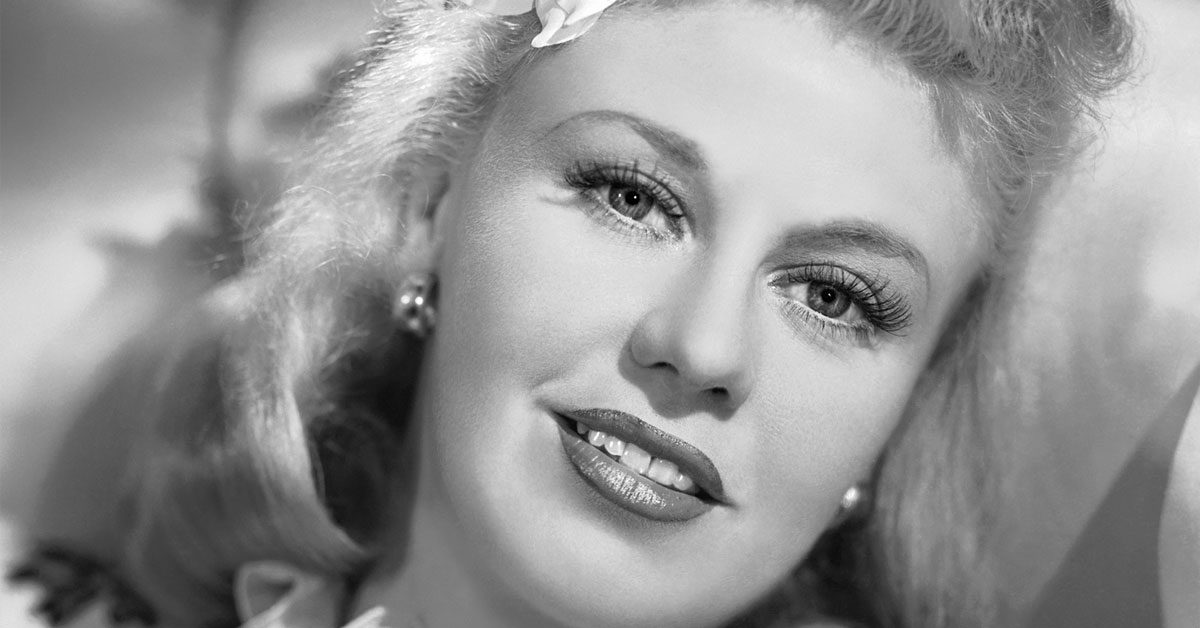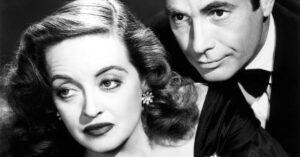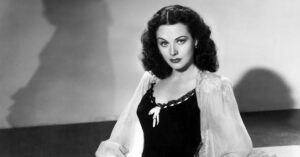Stage Door was one of the great movies of the 1930’s.
Four years after writing Dinner at Eight (1932), George S. Kaufman and Edna Ferber reteamed. This time they crafted a new show business play for the Broadway stage. Stage Door was its name. A theatrical boarding house full of actresses was its edgy setting. Their story was inspired by just such a real-life lodging called “The Rehearsal Club.” It was located off Times Square in New York.
Leland Hayward represented Stage Door‘s playwright. George S. Kaufman, and sold the screen rights to RKO for $130,000, an enormous sum at the time. He worked some other angles, too. Among theatrical figures he represented were Katharine Hepburn and Ginger Rogers. Both were under contract to RKO. That’s why Hayward made his deal for Kaufman with RKO. He was simultaneously arranging for Hepburn and Rogers to star in the film adaptation of Kaufman’s story.
Katharine Hepburn at the time was boxoffice poison and needed a hit. Ginger Rogers, on the other hand, was then a huge draw — but only when dancing with Fred Astaire. She desperately wanted a hit too, to grow and show another dimension of her performing abilities. She wanted, in her words, “not to be stereotyped.” Playing Hepburn’s breezy, slangy, hard-bitten (on the outside) roommate was, by Rogers’ own description, “A milestone in my career.”
The two actresses did not care for one another, to say the least. The very least. Knowing this adds another level of interest while viewing their barbed exchanges in Stage Door. Their disaffection probably stemmed from having contiguous or concurrent affairs with the same men during this period — director George Stevens, actor James Stewart, and aviator-industrialist-mogul Howard Hughes.
So the two ladies spoke to each other only when the cameras turned, snarling through lines like this one: “When I get back to my room you’re the only thing I want to find missing.”
Hepburn had long ago set the tone for their relationship with the famous crack that defined the dancing team of Astaire and Rogers: “She gave him sex; he gave her class.”
The year before, Rogers wanted a part in Hepburn’s MARY OF SCOTLAND (1936). On a test directed by John Ford, Rogers was disguised to conceal her identity. She did not deceive Hepburn, however, who “kicked me in the shins,” Rogers recounted in her autobiography. She quoted Hepburn at the time, “You (expletive deleted)! Who do you think you are fooling?”
Throughout production, Rogers perceived nothing but contempt and ridicule from Hepburn. So Rogers steered as far clear from Hepburn as possible, “not trusting what she might do if I in any way crossed her.”
June 8, 1937 was the second day of shooting, and found the cast of young ladies — Rogers, Hepburn, Ann Miller, Lucille Ball, Eve Arden, and Gail Patrick — clustered around a couch. Shock was reflected on their young faces as they studied the morning newspaper story with the black headline exclaiming “Jean Harlow Dead At 27!”
Stage Door cost about $900,000 to make. The previews elicited fantastic response. The premiere was staged at radio City Music Hall on October 7, 1937. Three days later the picture went into general release. Reviewers were ecstatic. This was a hit.
VARIETY raved, “Ginger Rogers is a revelation.” She and Hepburn each received the same $75,000 for their performances. At the time, Hepburn was the more important name, but Rogers, when paired with Astaire, was a more potent boxoffice attraction. How to handle billing was a question that studio executives pondered. RKO originally billed Rogers first, then reversed things.
Hepburn wrote in her autobiography, “I had no idea until much later that in the first preview Ginger Rogers was billed above me. I don’t even think that Ginger knew. At this preview so many cards came back saying, ‘The best Hepburn picture we’ve seen and she is great.’ They returned me to my first position. Lucky me.”
Stage Door garnered four Oscar nominations: best picture, best supporting actress (Andrea Leeds), best director, and best screenplay.
The picture holds up today and still plays great.




